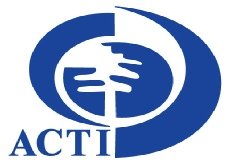
Our Strategic Plan 2022 -2027
The following 5 strategies and action steps were identified as being pertinent to ACTI fulfilling its mission and remaining a viable and sustainable organization through to 2021. Short-term action steps will occur during years 1 and 2 of this plan; mid-term steps will occur between years 3 and 4; and long-term actionables will take place in year 5.
STRATEGY I – RECOGNITION
ACTI will be recognized by stakeholders as the leading regional organization for tertiary level educational leadership and development.
ACTION STEPS – SHORT-TERM
Engage a marketing specialist with “brand management” experience to brand ACTI including a review and revision of the logo as necessary.
Formulate a slogan/tag line to identify ACTI
Re-develop ACTI’s website and create social media pages.
ACTION STEPS – MID-TERM
Using the new logo and brand, produce informational packets to be used to promote ACTI.
Establish and launch a communications/public relations campaign, using various media including social media, targeted at: tertiary institutions, students, funding agencies, the general public, other relevant institutions (regionally and internationally).
Seek membership/representation on additional relevant regional bodies e.g. CARICOM.
Members provide opportunities for the ACTI President to speak and respond to issues relevant to ACTI’s mission. E.g. Caribbean television programmes; ACTI reactions to issues affecting tertiary education in the region, etc.
STRATEGY II – ADVOCACY
ACTI will be an effective advocate for the advancement and development of quality tertiary education in the region.
ACTION STEPS – SHORT-TERM
Assess where ACTI’s voice is currently heard and determine where it should be heard. This should include assessing the extent that our voice is heard in the following among others:
o University of Guyana
o UWI Council Meeting
Currently represented by The President.
o UWI Campus Council Meetings
Currently represented by two persons on each of the 5 Campus Councils
o Sister Tertiary Education Organizations e.g. CANTA, CANQATE, ACHEA, CTLPA
o CARICOM – COHSOD, COTED
Currently represented at COHSOD
o Regional Education Projects – C-EFE etc.
Involved with the SAGE project
o General Public (at country and regional level)
o University of Technology, Jamaica – Council
Utilising annual conferences, annual general meetings, council meetings, electronic circulations (email, website, Facebook etc.), develop position papers relating to ACTI’s mission to obtain the views of members and reach consensus on particular issues.
Produce a quarterly newsletter.
ACTION STEPS – MID-TERM
Develop a public relations and media relationship (Caribbean news and news magazines) that ensures the visibility of ACTI, its activities and its views.
ACTI’s leadership to seek audiences with relevant public officials including ministers of government in various countries where possible.
Currently represented on Council
o CDB
o OECS
STRATEGY III – INSTITUTIONAL CAPACITY BUILDING
ACTI will provide opportunities for institutional capacity building and develop a quality culture for its members through professional development activities and technical support.
ACTION STEPS – SHORT-TERM
Undertake a needs assessment of member institutions as it relates to leadership, quality assurance and research capacity.
Schedule the Caribbean Educational Leadership Institute (CELI) annually to address issues relevant to the needs of senior leaders in member institutions.
o It was decided to change the schedule for CELI to make it a bi-annual event – to optimise attendance, given costs.
Plan and execute annual conferences/workshops to build capacity for the requisite academic and administrative personnel within our member institutions.
o C’bean Research Forum: maybe could explore using this as a forum to share ideas, virtually.
ACTION STEPS – MID-TERM
create a network whereby members can share events/activities that are unique to their campus but may be of benefit or interest to others. This could lead to participation in such events by others for credits or otherwise and could lead to cost savings.
Develop a project to look towards the harmonisation of the various quality assurance manuals in the region. It is noted that each territory has its own requirements and hence would lead to differences in the manuals. This could be in partnership with CANQATE and University of The West Indies (UWI).
STRATEGY IV – NETWORKING AND COLLABORATION
ACTI will be the foremost regional network of tertiary institutions and related organizations with strong external linkages.
ACTION STEPS – SHORT-TERM
Identify a list of international organizations and seek membership to gain access to global resources including:
o American Association of Community Colleges (AACC)
o Association of Canadian Community Colleges (ACCC)
o Association of Commonwealth Universities (ACU)
o Association of Universities of the Caribbean (AUC)
o Commonwealth of Learning (COL)
o Community Colleges for International Development (CCID)
o Council for Resource Development (CRD)
Invite relevant regional organizations (e.g. CANTA, ACHEA, CANQATE, CUT) to be associate members of ACTI.
Re-invigorate and strengthen country chapters by supporting joint activities e.g. periodic Higher Education journal clubs.
Institute sub-regional chapters e.g. OECS.
Pilot a project amongst member institutions to use technology to teach common courses, curriculum enhancement.
Pilot project to identify respective faculty with similar interests to facilitate collaborative research.
Pilot a project to facilitate teacher exchanges and meetings.
ACTION STEPS – MID-TERM
Invite and encourage professionals in international organizations with missions and goals congruent with ours to become ACTI members (INQAAHE).
Develop mechanisms for and encourage faculty exchange both within the region and internationally.
Identify, compile and share higher education data trends internally and with our international partners (where applicable).
Create an inventory of programmes and courses of member institutions, and map related courses to facilitate student movement among institutions (articulation and qualification framework).
Develop mechanisms to encourage student exchanges among member institutions.
ACTION STEPS – LONG-TERM
Provide an avenue for member institutions to actively work towards formalizing articulation agreements and/or memoranda of understanding where applicable.
STRATEGY V – SUSTAINABILITY
ACTI will be a financially stable organization that is sufficiently resourced to carry out its mission while continuously evaluating its effectiveness.
ACTION STEPS – SHORT-TERM
Strengthen internal operational capacity by assigning strategic areas/strategies to Executive and/or Council members.
Establish a plan to realize 100% paid up membership.
Encourage and incentivise compliance among members.
Provide grant writing and other services to members.
Establish a list of possible income-generating sources on a continuing basis.
ACTION STEPS – MID-TERM
Improve funding through grants and contracts.
Train a cadre of persons with skills to deliver revenue generating services through ACTI.
Engage and negotiate regional and national government subventions to enhance the work of
ACTI.
ACTION STEPS – LONG-TERM
Explore investment opportunities.
Establish an endowment fund.
Review and evaluate the plan in year-3.

